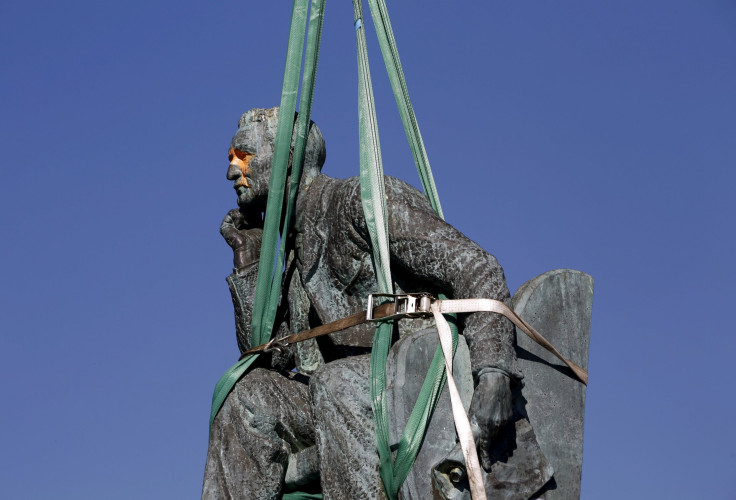'Rhodes Must Fall' Movement: Former South African President De Klerk Tells Oxford Students To Respect Colonialist's Legacy

Former South African President F.W. De Klerk has pushed back against Oxford University’s Oriel College campaign to remove a statue of Cecil John Rhodes from the Oxford, England, campus. De Klerk said while there is reason to disapprove of Rhodes, De Klerk "never thought of removing his name from our history."
The #RhodesMustFall movement has gained momentum at several schools around the world as students have criticized Rhodes for his segregationist legacy. Some say 19th century colonialist views conflict with the “inclusive culture” at the university, BBC News reported. More than 2,300 people have signed a petition to remove the statue.
But De Klerk penned a letter to the Times of London to encourage students to reconsider the campaign, which was launched in March at the University of Cape Town. He acknowledged Rhodes had been "the architect of the Anglo-Boer War that had a disastrous impact on our people, yet the National Party government never thought of removing his name from our history.”
He argued many influential figures have complicated histories. “If the political correctness of today were applied consistently, very few of Oxford's great figures would pass scrutiny," he said.
Rhodes was an alumnus of Oriel College, and De Klerk said the school should be "a little more gracious in its treatment of its most generous benefactor," who was responsible for the Rhodes Scholarship program, which funds 32 international fellowships each year. He also left 2 percent of his fortune to the university.
Students moved forward with the campaign last week when they persuaded the university to move a plaque commemorating Rhodes and consider whether to remove the statue.
“The significance of taking down the statue is simple: Cecil Rhodes is the Hitler of Southern Africa. Would anyone countenance a statue of Hitler? The fact that Rhodes is still memorialized with statues, plaques and buildings demonstrates the size and strength of Britain’s imperial blind spot,” graduate student Brian Kwoba, a campaign organizer, told the Guardian.
© Copyright IBTimes 2025. All rights reserved.






















